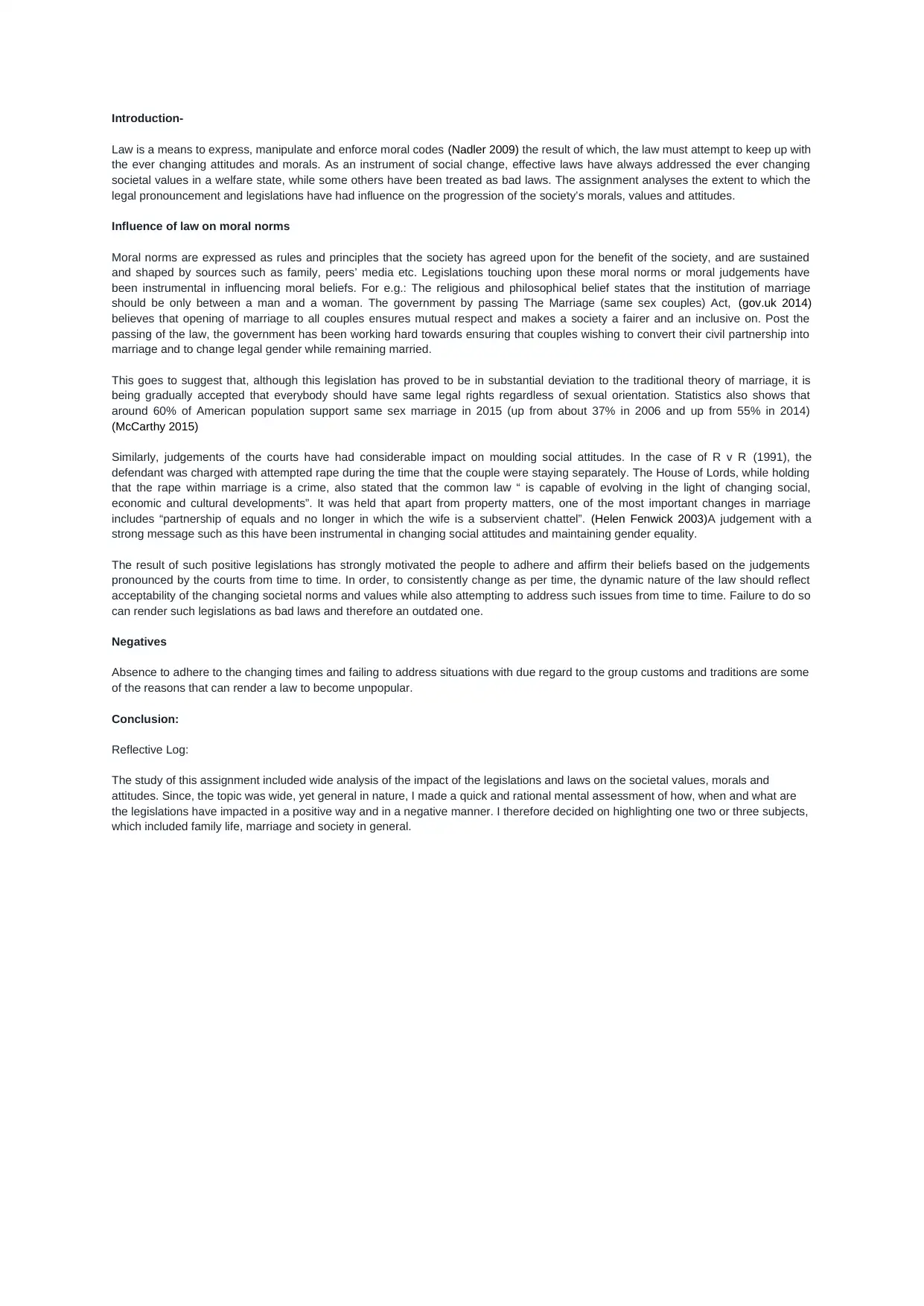The Influence of Law on Societal Values, Morals, and Attitudes
VerifiedAdded on 2019/10/18
|1
|690
|434
Essay
AI Summary
This assignment explores the significant influence of law and legislation on societal values, morals, and attitudes. The essay delves into how laws, such as those concerning marriage equality, shape and reflect evolving social norms. It examines the impact of legal judgements, like the R v R case, on gender equality and social attitudes. Furthermore, it highlights the importance of dynamic legislation that adapts to societal changes, while also acknowledging the consequences of laws that fail to resonate with cultural contexts. The reflective log indicates a focus on family life, marriage, and society, underscoring the interplay between legal frameworks and societal evolution. The analysis underscores the importance of legislation in promoting positive social change and the potential for laws to become outdated if they do not align with societal values.







![[object Object]](/_next/static/media/star-bottom.7253800d.svg)